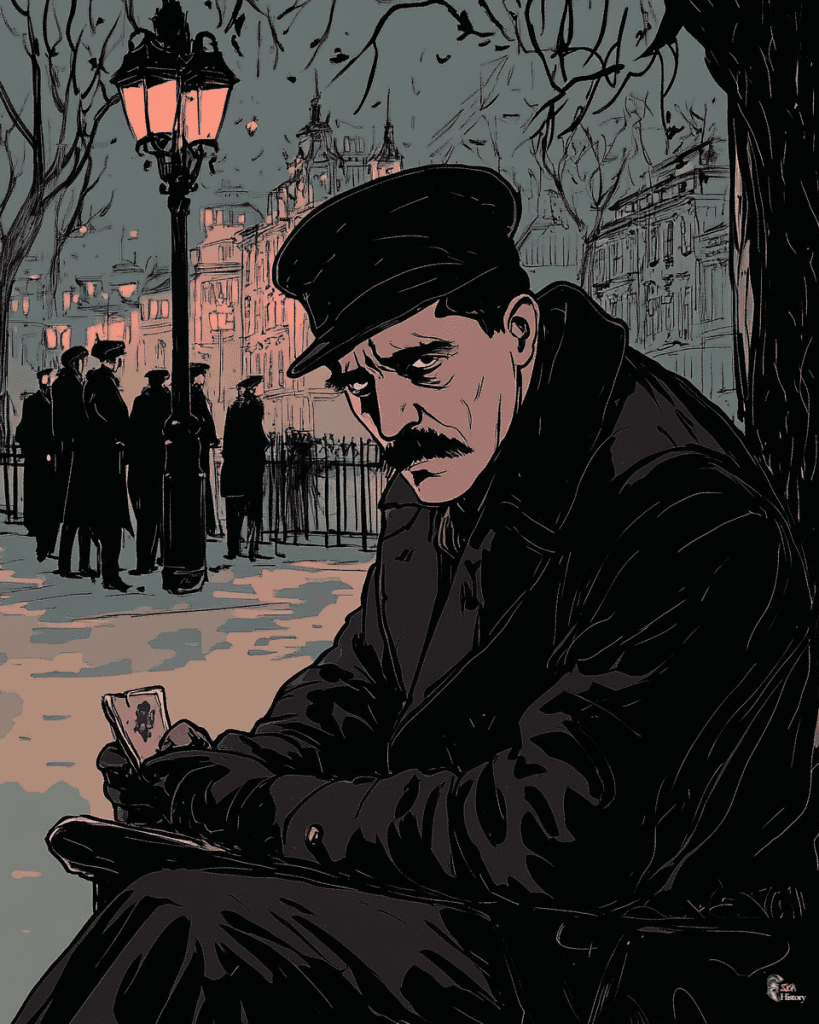In the twilight years of the Austro-Hungarian Empire, a young man with dreams of artistic greatness found himself plunged into a world of squalor and desperation. This was Adolf Hitler’s Vienna, a city that would forge the future Führer in the fires of poverty and resentment.
The Fall from Grace
In 1908, Adolf Hitler’s world came crashing down. Twice rejected by the Academy of Art, the aspiring painter watched his dreams dissolve into the harsh reality of destitution. By 1909, unable to pay rent, Hitler was forced to abandon his modest furnished room in Simon Denk Gasse.
A Summer Under the Stars
As Vienna’s elite enjoyed lavish balls and operas, Hitler found himself sleeping under the stars. In the summer of 1909, the future dictator joined the ranks of the city’s homeless, a stark contrast to the imperial splendor surrounding him.
The Men’s Hostel: A Haven of Misery
As autumn’s chill set in, Hitler sought refuge in a men’s hostel at 27 Meldemannstrasse in Vienna’s 20th district. This crowded, noisy shelter would be his home from 1910 to 1913, a crucible where his toxic worldview would begin to take shape.
The Hungarian Jew’s Coat: An Ironic Twist
In a twist of irony that history would render grotesque, Hitler’s most prized possession during this time was an oversized black overcoat, a gift from a Hungarian Jewish old-clothes dealer named Neumann. Reinhold Hanisch, Hitler’s acquaintance from the hostel, described a pitiful figure: long, unkempt hair spilling over the collar of the too-large coat, topped with a greasy, black derby hat.
Surviving in the Imperial Capital
Survival meant taking whatever work came their way. Hitler and Hanisch beat carpets, carried luggage at the West Station, and shoveled snow from Vienna’s streets. Each job was a reminder of Hitler’s fall from his middle-class origins and his failure to achieve his artistic ambitions.
Eventually, Hitler found a way to merge survival with his artistic aspirations. He began painting postcards – small, meticulous copies of Vienna’s famous sights. Hanisch became his salesman, peddling these miniature artworks in taverns, at fairs, and to shopkeepers looking to fill empty picture frames.
The Roots of Resentment
Despite his dire circumstances, Hitler indulged in small luxuries when he could. After selling a few postcards, he would refuse to work for days, instead retreating to cafes to indulge in cream cakes and newspapers. This pattern of brief indulgence followed by renewed poverty likely fueled his growing resentment towards society.
In March 1911, Hitler’s aunt Johanna Polzl died, leaving him a small inheritance. This temporary windfall provided a brief respite from the constant struggle for survival.
The Crucible of Hate
Hitler’s time in Vienna was more than just a period of poverty; it was the forge in which his hateful ideology was shaped. The contrast between the city’s luxury and his misery, the diverse population of the empire’s capital, and his personal failures contributed to the toxic worldview that would plunge the world into war.
The seeds of the Third Reich were sown in the grimy corridors of the Meldemannstrasse hostel, amidst the smell of unwashed bodies and the sound of snoring men. Hitler would later romanticize this period in “Mein Kampf,” casting himself as a dynamic struggler against adversity. As described by those who knew him, the reality was far less heroic.

